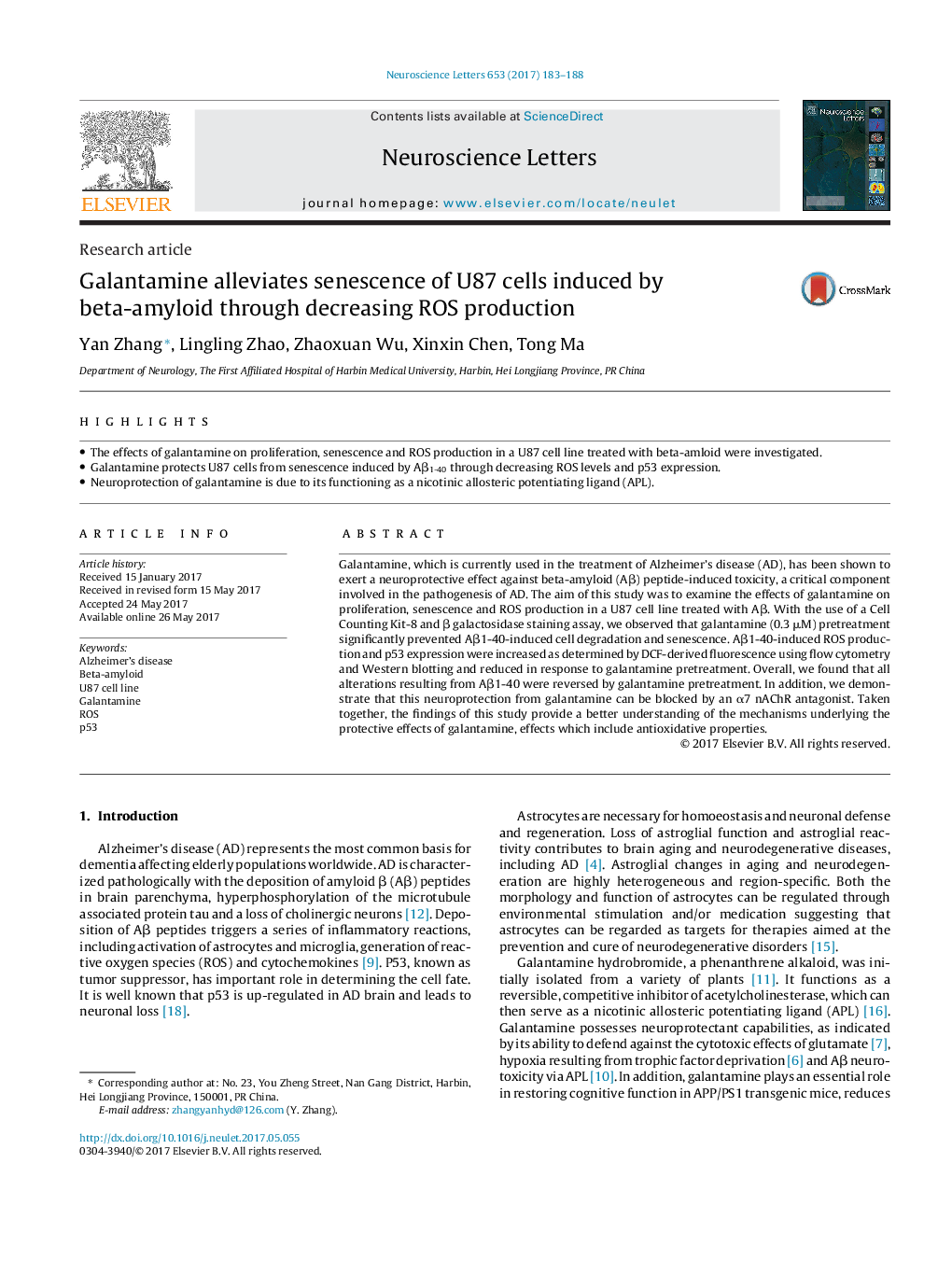| Article ID | Journal | Published Year | Pages | File Type |
|---|---|---|---|---|
| 5738128 | Neuroscience Letters | 2017 | 6 Pages |
â¢The effects of galantamine on proliferation, senescence and ROS production in a U87 cell line treated with beta-amloid were investigated.â¢Galantamine protects U87 cells from senescence induced by Aβ1-40 through decreasing ROS levels and p53 expression.â¢Neuroprotection of galantamine is due to its functioning as a nicotinic allosteric potentiating ligand (APL).
Galantamine, which is currently used in the treatment of Alzheimer's disease (AD), has been shown to exert a neuroprotective effect against beta-amyloid (Aβ) peptide-induced toxicity, a critical component involved in the pathogenesis of AD. The aim of this study was to examine the effects of galantamine on proliferation, senescence and ROS production in a U87 cell line treated with Aβ. With the use of a Cell Counting Kit-8 and β galactosidase staining assay, we observed that galantamine (0.3 μM) pretreatment significantly prevented Aβ1-40-induced cell degradation and senescence. Aβ1-40-induced ROS production and p53 expression were increased as determined by DCF-derived fluorescence using flow cytometry and Western blotting and reduced in response to galantamine pretreatment. Overall, we found that all alterations resulting from Aβ1-40 were reversed by galantamine pretreatment. In addition, we demonstrate that this neuroprotection from galantamine can be blocked by an α7 nAChR antagonist. Taken together, the findings of this study provide a better understanding of the mechanisms underlying the protective effects of galantamine, effects which include antioxidative properties.
